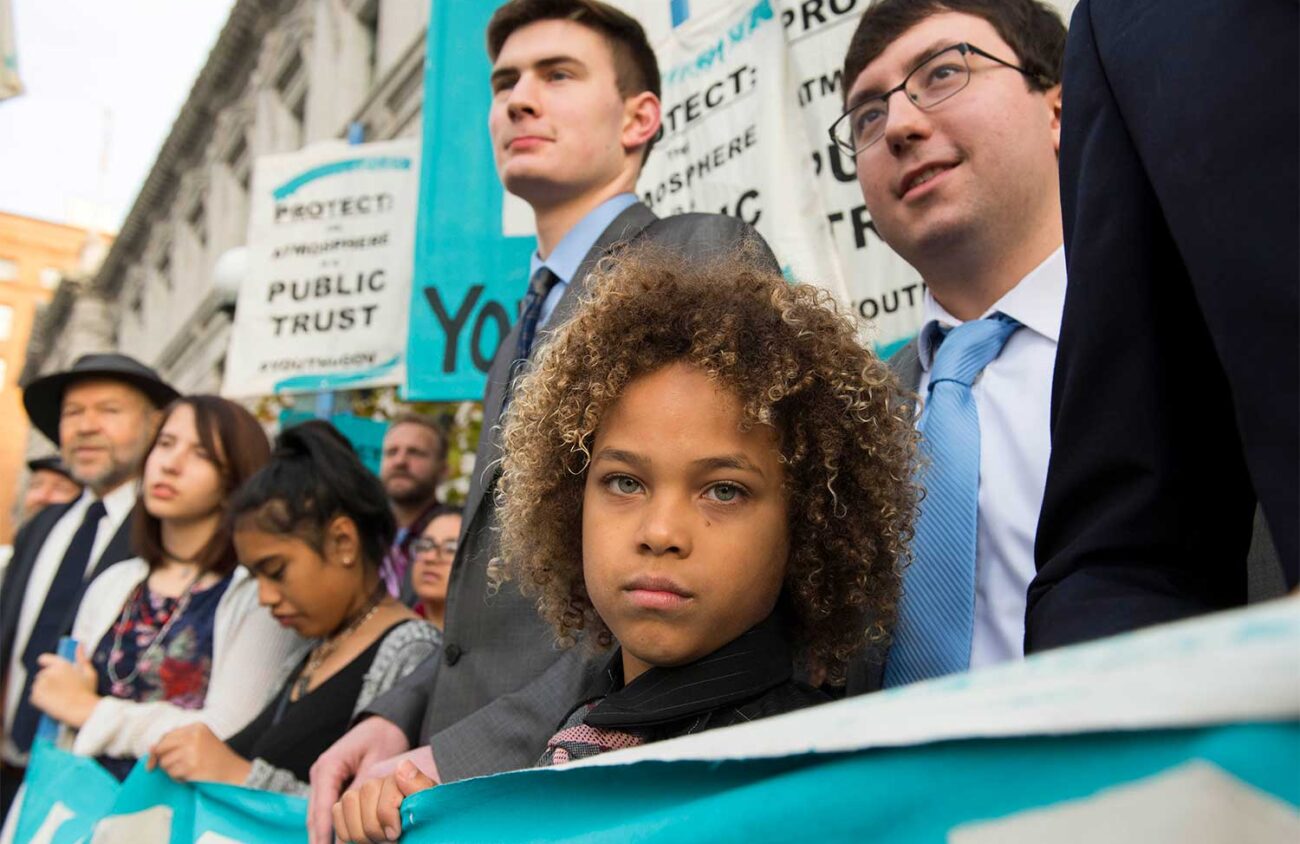The Juliana v. United States case — which was brought by Our Children’s Trust, a Eugene-based nonprofit public interest law firm that provides legal services to youth in the effort to guarantee a safe and sustainable climate for future generations — has faced a long road.
Now the U.S. Supreme Court’s March 24 denial of a petition for certiorari — a request for the court to review a case that a lower court has already made a decision on — has brought the nearly decade-long Juliana legal battle to an abrupt end.
The lawsuit’s 21 youth plaintiffs partnered with Our Children’s Trust in 2015 to file a complaint against the federal government for its actions that have exacerbated the climate crisis, asserting that their constitutional rights to life, liberty and property had been violated.
Julia Olson, chief legal counsel of Our Children’s Trust, tells Eugene Weekly that the plaintiffs have “mixed emotions” in light of the denial.
“They’re angry at the presidential administrations and the Department of Justice and the appellate courts that blocked them from having their case heard,” she says. “They’re grateful for all of the positive impact they’ve had in the world and everything they’ve accomplished over the last 10 years.”
“For almost 10 years, we’ve stood up for the rights of present and future generations, demanding a world where we can not only survive, but thrive,” Juliana plaintiff Miko Vergun said in a March 24 press release from Oregon Children’s Trust about the Supreme Court’s denial. “We’ve faced extreme resistance by the federal government, yet we’ve never wavered in our resolve.”
This resistance includes the series of seven petitions for writs of mandamus by the defendants. A writ of mandamus is a court order that compels a government entity to properly perform its duty. In the case of Juliana, the petitions were filed due to the defense’s early insistence that the entire lawsuit should have been dismissed.
The Department of Justice’s seventh and final writ of mandamus was granted by the Ninth Circuit Appellate Court on May 1, 2024. According to Olson, however, the three-judge panel of the Ninth Circuit Appellate Court did not review Our Children’s Trust’s amended complaint when granting it.
“They completely ignored all precedent, all rules of civil procedure and appellate procedure,” Olson says. “They completely went activist judicial panel and ignored the law.”
The Supreme Court’s denial of the petition for certiorari means the case was dismissed without prejudice, which will allow Our Children’s Trust to refile the case once any jurisdictional issues that led to its dismissal are fixed. Because the amended complaint was never reviewed, Olson says, “the only court to ever rule on our amended complaint is Judge [Ann] Aiken, and she said it was good to go to move forward to trial.”
While Olson says the law firm could refile the same complaint, “it was based on a story from 10 years ago about what the federal government was doing and the harm to the plaintiffs. Now we have a whole new set of federal actions under this new administration, so we’re building a new case.”
The certiorari denial is not the end for the youth-led fight for climate justice in the United States. According to Our Children’s Trust’s press release, “The legal framework established by Juliana has inspired over 60 youth-led climate lawsuits worldwide, against more than 50 countries and states.”
The success of these offshoot cases is in part due to the landmark opinion written by U.S. District Judge Aiken in November 2016, which Olson says was “the first opinion by any court in the world to say that the right to a life sustaining climate is a fundamental right.”
In reference to Aiken’s opinion and U.S. Magistrate Judge Thomas Coffin, who denied early motions to dismiss the case outright, Olson says, “It wasn’t about partisanship. These were not activist judges.”
“These were judges just doing their job and not being affected by any special interests,” she adds. “They were reading the law, looking at the facts and issuing rulings to the best of their ability. We’re so lucky to have federal judges like that.”
In response to the certiorari denial, Our Children’s Trust has announced its desire to bring Juliana to international venues.
“The United States government does not submit to the jurisdiction of international judicial bodies,” Olson says, “but those courts and commissions are really important in our international legal system, and they can issue really important rulings that are persuasive even here in the United States.”
She adds, “Back before 2015, the law schools, the legal academy, people around the world, courts around the world weren’t talking about children’s climate rights. Now everyone in legal institutions around the world are talking about children’s climate rights, and that is a tribute to these 21 youth stepping up and taking action.”
Email Info@OurChildrensTrust.org or visit OurChildrensTrust.org/take-action to get involved in current and future climate crisis legal action. Thomas Coffin writes periodic guest opinion pieces that appear in Eugene Weekly.
